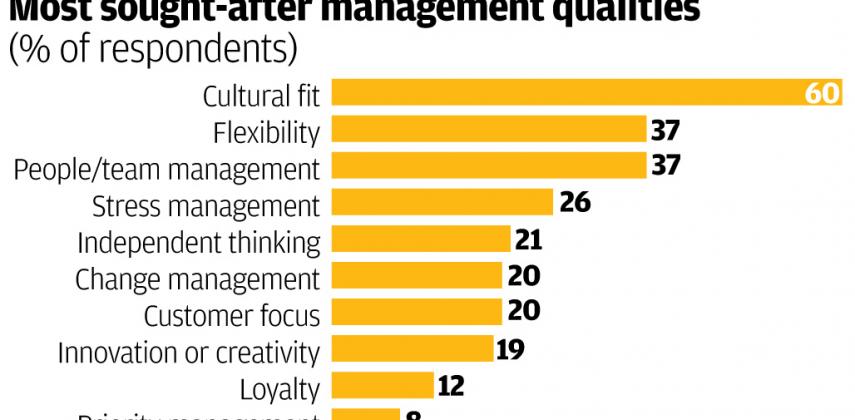Looking to claw your way up the corporate ladder? You might want to work on fitting in first.
The latest Hudson Report shows that cultural fit is the leading attribute employers look for when hiring managers. The study, based on a survey of 1,550 employment decision-makers in Hong Kong, found that 60 per cent of respondents cited cultural fit as a key factor when making their decision to hire. This contrasts with 58 per cent in Singapore and 50 per cent in Shanghai.
The fact that cultural fit led other important attributes - such as flexibility, independent thinking and loyalty - came as a bit of a surprise. But the discovery is nevertheless justified, particularly here in the region, says Hudson's executive general manager in Hong Kong, James Carss.
"When hiring at a managerial level, companies are not looking to fit with the culture of individuals, but rather are looking for individuals to fit in with the culture of the company," he adds.
Carss likens corporations to families and points out that each is different with its own intricacies and dynamics. "Given the choice, companies would prefer to move internal, 'family' people up the ranks," he says. "Of course, sometimes this simply isn't feasible. Furthermore, bringing in outsiders can help facilitate change."
Of all the six core industry groups surveyed, the legal sector placed cultural fit on a significantly higher bar (85 per cent). However, stress management was also rated highest (95 per cent) among legal industry players, Carss notes, adding that there was definitely a link between the two.
"Lawyers work in a competitive environment, working long hours and adhering to strict deadlines. For this reason, cultural fit is more important," he says.
Those in management in the legal field need to feel comfortable in their surroundings to deal with pressure, Carss adds.
While cultural fit was a key attribute for managers in the legal industry, it was not considered as important for management positions in the media, public relations and advertising fields (37 per cent). "To be an outsider in [these sectors] is not such a negative thing and it can in fact be a plus," Carss says.
He notes that cultural fit is deemed equally important for senior and entry levels. "But as the position gets more senior, cultural fit becomes increasingly relevant as managers need to represent the culture more than the people they are managing," he says.


